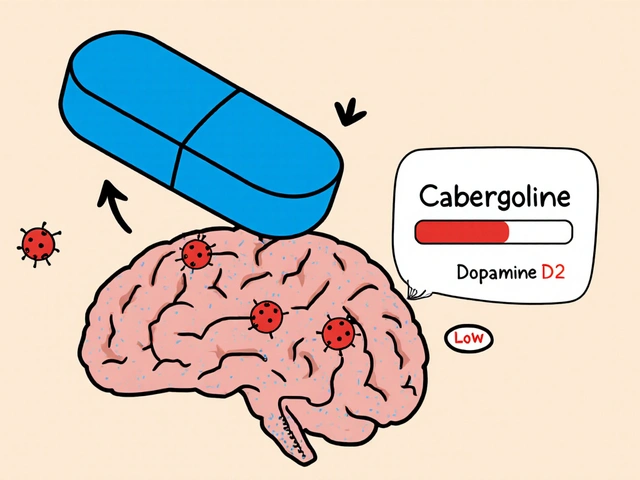Melatonin for Heartburn: Can it Help GERD and Acid Reflux?
If you wake up at night with burning in your chest, you’ve probably tried diet changes, antacids, and sleeping propped up. Melatonin shows up in conversations about heartburn because it affects the digestive tract and repair processes, not just sleep. Here’s a clear look at what melatonin can — and can’t — do for heartburn.
Why melatonin might affect heartburn
Melatonin is a hormone your body makes at night. In the gut, it helps protect the lining, reduces inflammation, and may improve the tone of the lower esophageal sphincter (LES) — the valve that keeps stomach acid from rising. Small clinical studies have tested melatonin in patients with GERD and found symptom improvement, especially when melatonin was added to a proton pump inhibitor (PPI). That doesn’t mean melatonin replaces standard treatment, but it may help some people as an add-on.
Keep in mind those studies were limited in size. They suggest a benefit, but we don’t have large, definitive trials yet. Still, the mechanisms — mucosal protection and possible LES improvement — give a plausible reason to try melatonin carefully under guidance.
How people use melatonin for heartburn (practical tips)
Doses in research and practice vary. Many people start low: 0.5–3 mg taken 30–60 minutes before bed. Some practitioners use higher doses (up to 5–10 mg) short-term, but higher doses increase the chance of daytime sleepiness and side effects. Try one low dose for a few nights and note any change in night-time heartburn or sleep quality.
Pair melatonin with proven habits: avoid late heavy meals, cut alcohol and caffeine close to bedtime, stop smoking, and raise the head of your bed 6–8 inches. If you’re already on a PPI or H2 blocker, talk to your doctor before adding melatonin — some studies used melatonin alongside PPIs and reported better results than PPI alone.
Watch for side effects: drowsiness, vivid dreams, headaches, or dizziness. Don’t drive or operate heavy machinery until you know how melatonin affects you. Avoid melatonin if you’re pregnant, breastfeeding, or on medications that interact (like blood thinners, certain diabetes medicines, or strong sedatives) unless your clinician approves.
If heartburn is frequent, intense, or comes with weight loss, vomiting, trouble swallowing, or blood in stool, see a doctor quickly. Those are red flags that need medical evaluation.
Finally, pick reputable brands with third-party testing to avoid impurities and unreliable dosing. Talk with your healthcare provider about timing, dose, and whether melatonin fits into your overall reflux plan. It might help night-time symptoms for some people — but it’s best used thoughtfully and under professional advice.

Explore how to blend herbs and medications for effective GERD relief. We break down the science behind melatonin, DGL licorice, and other supplements, showing you practical steps and useful facts to manage reflux. Get clear evidence, relatable tips, and even a link to Nexium alternatives. If you’re tired of the endless cycle of heartburn, here’s a hands-on guide for real results.






